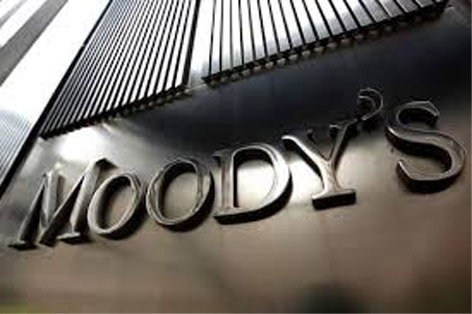NEW DELHI, May 19: Moody’s Investors Service on Tuesday said the measures announced by the government for financial institutions as part of Rs 20 lakh crore-economic package will help ease their asset risk, but will not fully offset the negative impact from the COVID-19 outbreak.
The government last week announced a support package of Rs 3.70 lakh crore for micro, small and medium enterprises (MSME) sector, Rs 75,000 crore for non-banking financial companies (NBFCs) and Rs 90,000 crore for power distribution companies.
This is part of the overall economic package announced by the government over last week to mitigate the economic impact of coronavirus crisis.
“While these measures will help ease asset risks for the financial sector, they will not fully offset the negative impact from the coronavirus outbreak,” Moody’s said in a commentary titled ‘Financial Institutions – India: Support measures to provide relief to the financial system, but will not solve all issues’.
On MSME package, the rating agency said the sector was already under stress before coronavirus outbreak and further slowdown in economic growth will lead to more liquidity woes.
With regard to measures for NBFCs, it said the support is “far lower than the immediate liquidity requirements of those companies” and the sector will continue to pose risks to the banks.
Amongst the measures, the most significant is the government guaranteed, automatic and uncollateralised loans to MSMEs.
Such loans will help improve MSMEs’ near-term liquidity and ease asset risks for the banks and NBFCs who are the key lenders to the sector, it said.
However, the MSME sector was already under financial strain before the outbreak of the coronavirus because of the gradual slowdown in India’s economic growth over the past 18 months. As a consequence, it has limited capacity to weather another economic shock, Moody’s said.
“The deeper and broader economic slowdown in India’s growth, the more the MSMEs will face liquidity stress, leading to asset-quality problems for the financial system,” it added.
Moody’s said the relief measures for the NBFC sector will fall short of solving the liquidity needs of the sector. The government will set up a special purpose vehicle that will subscribe to new and existing bonds issued by NBFCs up to a maximum of Rs 30,000 crore.
“This is the first instance of direct support to the NBFC sector from the government, but the size of support is far lower than the immediate liquidity requirements of those companies.
“The planned debt purchase represents about 2 per cent of the total outstanding debt of the top 20 NBFCs that represent close to 75 per cent of the assets of the NBFC sector,” it added.
Also, the Reserve Bank of India’s (RBI) liquidity measures have so far benefited the larger and better-rated NBFCs, while the credit flow to smaller NBFCs has been less effective.
“We do not expect these new measures to significantly help the smaller NBFCs and their funding conditions are likely to remain difficult. We expect that NBFCs will continue to pose risks to the banking sector as banks are a large lender to the sector,” it added.
Liquidity support to power distribution companies (discoms) will improve near-term cash flows of power generating companies.
According to the agency, loans from the Power Finance Corporation Ltd and Rural Electrification Corporation Ltd to discoms will allow them to repay amounts owed to power generating companies and help their cash flow, easing asset risks for the lenders to the sector.
“Nevertheless, the sharp slowdown in India’s economic growth and the continued low capacity utilisation in the power sector will exacerbate the already stressed conditions of power generation companies.
“For PFC and REC, although the loans carry low risk because of state government guarantees, the new loans will increase leverage unless the two companies raise new equity capital. Leverage is measured as total assets/shareholders’ equity,” Moody’s added. (PTI)
Trending Now
E-Paper


